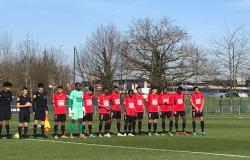While Brendan Gallagher struggles to keep up with the hectic pace of the NHL, Rafaël Harvey-Pinard, a silent but frustrated witness, must ask himself: how did we get here?
Harvey-Pinard, younger, more energetic, and even more effective in his role as plumber, watches helplessly as Gallagher takes up a valuable spot in the Canadiens’ lineup, while blocking Quebecers like him.
The numbers speak for themselves. If Gallagher, with his seven goals at the start of the season, briefly recalled his offensive potential, his slowness and his physical deficiencies have become an unbearable burden.
Harvey-Pinard excels in intensity and consistency, essential qualities in a supporting role.
Certainly, Harvey-Pinard is not the fastest player, but he is undeniably more mobile than Gallagher today.
So why does the latter continue to benefit from significant ice time in the NHL, despite plummeting performances?
The family and loved ones of Rafael Harvey-Pinard must be fuming watching Brendan Gallagher play like a grandfather finished on rope.
The answer seems to have more to do with his contract and status than his actual performance.
By keeping Gallagher in an important role, the Canadiens block not only Harvey-Pinard, but also other talented Quebecers like Alex Barré-Boulet or Joshua Roy.
Roy, whom the organization protects by sending him to accumulate experience in Laval, could already offer energy and speed that Gallagher can no longer provide.
This situation becomes even more difficult to accept for Harvey-Pinard, who gave everything for the Canadian. He never tried to complain, even when he was relegated to Laval after a year marked by injuries.
But seeing Gallagher, doubled over on the bench, struggling to breathe and unable to keep up, he must feel a deep injustice.
The weight of Gallagher’s contract — $6.5 million per year until 2027 — weighs heavily on the Canadian’s shoulders.
But it also weighs on those of players like Harvey-Pinard, who see their progress slowed down by a presence which is no longer justified on a sporting level.
Harvey-Pinard could offer consistent intensity, impeccable work ethic and versatility that Gallagher can no longer provide.
However, the management of the Canadian seems frozen, unable to turn the page on a player who certainly embodies the glorious past of the club, but not its future.
For Harvey-Pinard, the situation is all the more frustrating because it goes beyond the simple sporting framework. He knows his place in the organization could depend on the decisions made around Gallagher.
Meanwhile, he fights to prove his worth, all while watching a visibly exhausted veteran fill a spot he could better fill.
But it is not only Harvey-Pinard who suffers from this situation; it’s also the team, the fans and even Gallagher himself, forced to pursue a career under conditions that do neither his past nor his present justice.
The Montreal Canadiens must face a crucial decision. Gallagher’s decline is an undeniable fact, and his continuation in a significant role is no longer justifiable.
Rafael Harvey-Pinard, for his part, embodies everything the organization should value: youth, intensity and dedication.
We feel a tragic irony linking these two players. Harvey-Pinard, who grew up admiring Gallagher as a role model, now finds himself falling victim to the imposing shadow of his idol, a player now incapable of performing at the required level, but whose presence blocks the path of young talents like him.
Gallagher has long been the perfect example for a player like Harvey-Pinard. With a style of play based on effort, intensity and an unconditional love for the blue-white-red sweater, he inspired a generation of young Quebecers to believe that hard work could compensate for a lack of raw talent.
Harvey-Pinard took this path, building his career on similar qualities.
But today, this admiration turns into tragedy. Gallagher has become a drag. Unable to keep up with the hectic pace of the NHL, he remains in the lineup due to his whopping $6.5 million per season contract and his status on the team.
And meanwhile, the younger and more energetic Harvey-Pinard is relegated to Laval, his career collapsing before our eyes.
What makes the situation even more tragic is that Harvey-Pinard now faces a future almost identical to that of his idol.
With a $1.1 million per year contract expiring, he knows the NHL will likely never offer him another guaranteed contract.
The doors to the NHL are closing, just as they will soon close for Gallagher.
But unlike his idol, Harvey-Pinard never had the luxury of a lucrative contract and long years in the elite to secure himself financially.
If Gallagher can still rely on his status and salary to artificially prolong his career, Harvey-Pinard must fight for every opportunity, knowing that the NHL will no longer offer him this chance.
The bitter irony is that it is precisely because of Gallagher that Harvey-Pinard never had the space necessary to make his place with the CH.
The position occupied by the veteran, his minutes of play, his role on the team and even his contract, all contributed to slowing down the rise of a player who could have been a pillar of depth for the Canadiens.
Harvey-Pinard, with his intensity and impeccable ethics, could have offered more to the team than the Gallagher of 2024, worn out and unable to keep up.
But instead, he had to settle for crumbs, watching his own future crumble under the weight of the decisions made to protect a legendary but outdated player.
Gallagher, once a source of inspiration, has become the symbol of what is holding Harvey-Pinard back.
And while the veteran continues to be protected by his contract and his status, the young Quebecer must face a heartbreaking reality: his NHL career is likely over before it has even truly begun.
Harvey-Pinard, who has always been a model of perseverance, deserves better.
And he is not alone; the fans, too, want to see a team built on solid foundations, where each player has truly earned their place.
Time is running out, and the Canadian’s future depends on it.





